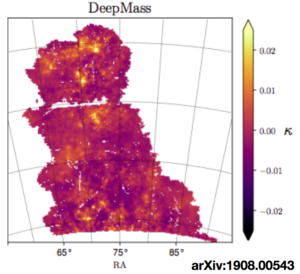| Authors: | F. Sureau, F. Lanusse and J.-L. Starck |
| Language: | C++ |
| Download: | ISAP_V3.1 |
| Description: | Interactive Sparse Astronomical Data Analysis Packages. |
| Notes: | Documentation: doc_iSAP_V3.0 |
Interactive Sparse Astronomical Data Analysis Packages
iSAP is a collection of packages, in IDL and C++, related to sparsity and its application in astronomical data analysis (the IDL software (http://www.idl-envi.com) is analogous to Matlab and is very widely used in astrophysics and in medical imaging). The C++ routines can be used independently of IDL.
The iSAP V3.1 software, including all these packages, can be downloaded here: ISAP_V3.1.
The documentation of iSAP is available in PDF format: doc_iSAP_V3.0
It contains the following packages:
- Sparse2D V1.0: Sparsity for 1D and 2D data sets
IDL and C++ code, allowing sparse decomposition, denoising and deconvolution.
- MSVST V1.0: Multi-Scale Variance Stabilizing Transform for 1D and 2D data sets
IDL and C++ code for Poisson noise removal. Matlab code can also be found here.
- MRS V3.2: MultiResolution on the Sphere
IDL and C++ code for sparse representation on the sphere. More details can be found here.
- SparsePOL V1.1: Polarized Spherical Wavelets and Curvelets
IDL code for sparse representation of polarized data on the sphere. More details can be found here.
- MRS-MSVSTS V1.1: Multi-Scale Variance Stabilizing Transform on the Sphere
IDL code for Poisson noise removal and deconvolution on mono-channel and multichannel spherical data. More details can be found here.
- SparseGal V1.0: Sparsity for galaxies survey analysis
IDL code, with two subpackages:- ISW V1.0: Integrated Sachs-Wolfe effect detection.
- DarthFader V1.0: Spectroscopic Redshift Estimation using sparsity.
- SparseCMB V1.0: Sparsity for CMB data analysis
IDL code, with three subpackages:



